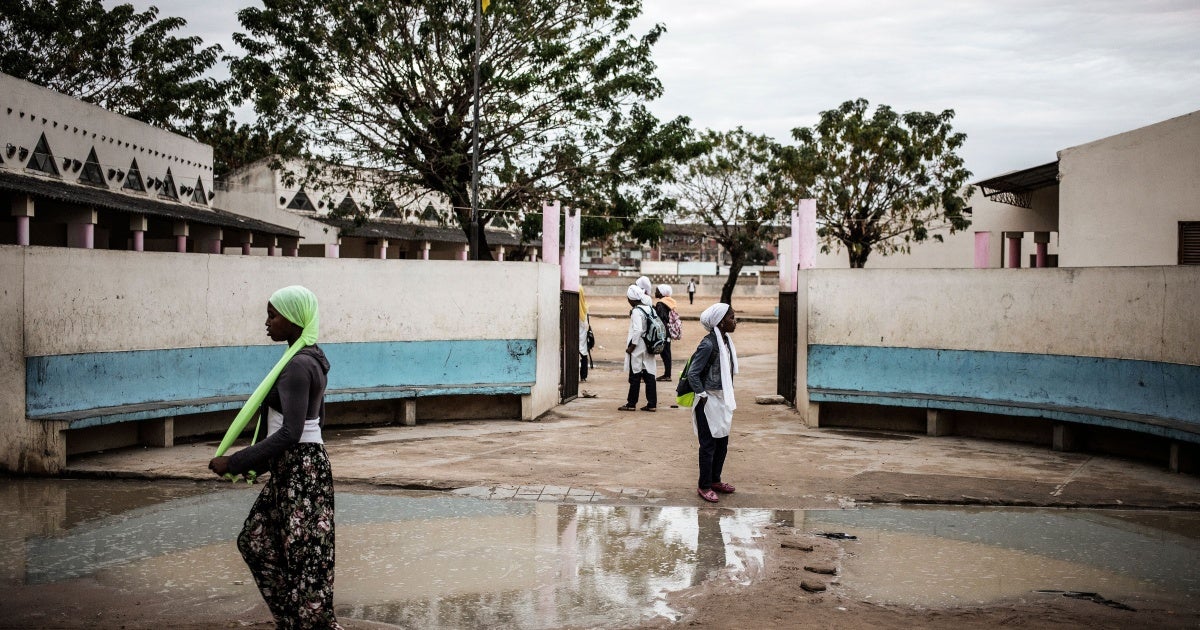- In Mozambique, pregnant or parenting adolescent girls and women often discontinue their education due to the lack of sufficient support provided by schools.
- Discrimination, stigma, and inadequate support hinder girls who become mothers from balancing school and childcare responsibilities, leading to their dropout. Moreover, the absence of free education contributes to forcing many girls from impoverished families out of the educational system.
- To address these challenges, Mozambique should implement legally binding regulations to safeguard girls’ right to education during pregnancy and parenthood. Additionally, comprehensive sexuality education and childcare services need to be provided to support these vulnerable groups.
In a report unveiled today, Human Rights Watch highlighted the struggles faced by pregnant or parenting adolescent girls and women in Mozambique, emphasizing the insufficient support they receive from schools during this critical period. Despite the government’s efforts to eliminate discriminatory practices against pregnant students and young mothers five years ago, many educators and school officials lack clear directives on upholding the educational rights of these individuals.
The 52-page report titled “‘Girls Shouldn’t Give Up On Their Studies’: Pregnant Girls’ and Adolescent Mothers’ Struggle to Stay in School in Mozambique” sheds light on the numerous obstacles encountered by pregnant or parenting adolescent girls and women in their quest to continue their education. These challenges include limited access to sexual and reproductive health information, particularly comprehensive sexuality education, and adolescent-friendly sexual and reproductive health services.
Elin Martinez, senior children’s rights researcher at Human Rights Watch, emphasized the discrimination, stigma, and lack of accommodations experienced by young parents, making it arduous for them to manage both academic and childcare responsibilities. Consequently, a significant number of pregnant or parenting girls are compelled to abandon their education before completion.
In 2003, the Mozambican government issued a ministerial order directing school authorities to transfer pregnant girls and adolescent mothers from daytime to night-shift schools, perpetuating discrimination within the education system. However, following advocacy efforts by civil society organizations, the government rescinded the order in December 2018, instructing schools to allow pregnant and parenting students to attend classes during regular school hours.
Although the government’s decision to revoke the discriminatory policy demonstrates a commitment to promoting girls’ education, translating this policy change into tangible outcomes at the grassroots level remains a challenge. Some teachers and school officials continue to refer students to night-shift schools due to stigma or a lack of clear guidance, while others actively support pregnant and parenting students in staying enrolled.
Financial barriers, including the absence of free education and additional costs such as tuition fees and transportation expenses, disproportionately affect girls from low-income families, leading to high dropout rates. To address these issues, the government should establish accessible childcare and early childhood education facilities to support parenting students in continuing their education.
Human Rights Watch recommends that Mozambique enact enforceable regulations to protect girls’ right to education during pregnancy and parenthood. It is crucial for the government to consult adolescent girls and women and draw insights from other African nations to develop a human rights-compliant policy framework that addresses the needs of pregnant and parenting adolescents effectively.
Furthermore, ensuring access to comprehensive sexuality education and adolescent-responsive reproductive health services, including safe and legal abortion where permitted by law, is essential. By prioritizing gender equality in education, the Ministry of Education and Human Development can demonstrate its commitment to advancing the rights of adolescent girls in Mozambique.
Key Statistics on Girls’ Education in Mozambique:
- Mozambique ranks fifth globally in terms of child marriage prevalence.
- The country has the highest adolescent pregnancy rate in East and Southern Africa, with 180 births per 1000 girls and young women aged 15 to 19 in 2023.
- Approximately 1 in 10 girls in Mozambique gives birth before turning 15, according to the United Nations.
- A study conducted in 2019 on primary school dropouts revealed that 70% of pregnant girls, many of whom were still in school post-puberty due to delayed enrollment, discontinued their education.
- In 2022, only 41% of girls completed lower secondary education, while a mere 4% finished upper secondary education in 2020.

